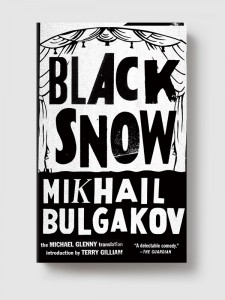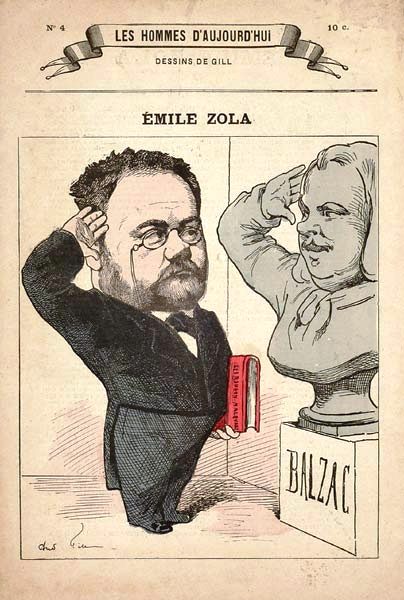The Black Spider, by Jeremias Gotthelf, has an incredibly high creepiness factor. The exceedingly creepy cover should have fully primed my expectations, but the book's contents managed to work their way even deeper under my skin.
Jeremias Gotthelf was the penname of Albert Bitzius, a Swiss pastor and novelist, who is celebrated for his detailed depiction of rural life. He lived 1797 to 1854, which makes him a contemporary of Adalbert Stifter, which I mention because the opening of
The Black Spider quite reminded me of the style of
Rock Crystal, the lyrical way in which the pastoral scene is set.
The story goes something like this:
An attendee of a christening party draws attention to a rough old post beside a window in an otherwise attractive home. Grandfather tells its tale:
A few centuries beforehand, the Swabian Hans von Stoffeln ruled the land, and by grandfather's account, he was not a reasonable man. After building his castle, the peasants were ordered to line the walk with trees. Having neglected their own harvests for several years already, the villagers had reached the point of desperation. A red-bearded huntsman in green comes upon them and offers to help. In exchange for an unbaptized child. After some deliberation, the villagers agree. The huntsman seals the deal with a kiss upon the cheek of the strong-willed Christine.
Babies are born and hastily baptized, cheating the devil out of his payment. Christine's cheek, meanwhile, burns and blackens and gives birth to a plague of spiders that infect the land, killing livestock and people. When Christine's attempt to kidnap a newborn to pay the debt is thwarted, the spider within bursts from her cheek — Christine shrinks into it and it fully consumes her. The spider is finally caught and imprisoned within a hole dug into that blackened post, which was plugged up.
Generations later, the people scoffed at the tale of the spider, and the spider came to be released. Again it was captured and imprisoned, and care was taken that it should not be released again. Thus the grandfather's tale serves to remind the villagers of their blessings, and that God is watching — and that the devil is, too.
A simple-enough pact-with-the-devil story, right?
The Swabian
The first creep factor to set me off was the mention of the "Swabian." It's a term I wasn't familiar with before reading Roberto Bolaño's
2666. and now every mention of Swabia, the region or its people, invokes for me the horror of
2666.
It turns out that there's a little something more to the connection. In the first section of
2666, The Part About the Critics, one of the critics has written a couple papers on Archimboldi, including one:
on the various guises of conscience and guilt in Lethaea, on the surface an erotic novel, and in Bitzius, a novel less than one hundred pages long, similar in some ways to Mitzi's Treasure, the book that Pelletier had found in an old Munich bookstore, and that told the story of the life of Albert Bitzius, pastor of Lützelflüh, in the canton of Bern, an author of sermons as well as a writer under the pseudonym Jeremiah Gotthelf.
Clearly Bolaño was familiar with Gotthelf, and that being the case, he was undoubtedly aware of (and likely read) the book considered to be his masterpiece:
The Black Spider. Bolaño's influences were notoriously wide and varied, and I don't doubt Gotthelf (and specifically
The Black Spider) was among them. (While it is fairly unknown among English readers, the story does seem to have cult following in German, and quite possibly other languages. Witness this
rendering in Warcraft.)
It seems to me that
The Black Spider and
2666 share a kind of insidious evil, that at times is embodied within an individual, sometimes pervades the collective social conscience, is part of the natural order of things, and at other times takes on cosmic proportions. It's Evil with a capital E, the likes of which not many novels can grapple with subtly and successfully (by which I mean they are not laughable allegories).
The contract
The second creep factor concerns the nature of the contract. The devil asks for an unbaptized child, and the villagers agree. It is not a contract concerning a particular child, or a particular mother-to-be. The child whose soul is at stake is not yet born, let alone consulted. The particular parents also are ignorant, though it may be argued that as villagers they have been complicit in the deal.
I read a commentary recently, I think it was in relation to the Rosemary's Baby (the movie, but I'm sure it applies to the book just the same), that the horror was not so much in the baby, or the devil, or the satanic cult even — it's in the fact that control is wrested from this poor woman, over her pregnancy and her child. I couldn't help but think of this while reading
The Black Spider as one woman after another went into labour fearing for their babies. The women are forced to bear the consequences of not fulfilling a contract they had no part of.
So much of the horror has nothing to do with the spider or the huntsman who introduces it. It's to do with the fact that the villagers have decided someone else's fate.
The specific terms had not been set out in the contract. That is, there were no predefined rules. This is the horror.
The justice
Everybody ultimately gets theirs in this tale. What makes this justice uncomfortable is that it's not clear who is meting it out. The first wave of spiders killed indiscriminately, chaotically. But the Christine-spider strikes those villagers who were implicated in striking the bargain. She kills Hans von Stoffeln and his knights. But she spares those castle servants who had treated the peasants rightly. Is this Christine's justice, then? Or God's? If so, how could it come from what was implanted by the devil? And clearly it still sought an unbaptized child by which to fulfill the obligation. Is it God or the devil who demands a sacrifice?
Premonitions of a dreadful future rose before them, but not one had the courage to put a stop to things; their fear of the devil's plagues was stronger than their fear of God.
A story within a story
This novella has excellent pacing, making it feel much fuller than its 108 pages. When once I thought the story was coming to a head, it took another turn to keep me on the edge of my seat.
Also because the internal story has two parts within a frame story, it is enriched by the sense that it spans time. The frame story's present day seems to be in danger of falling into gluttony and sloth, thus making the hardships of the original peasants all the more poignant.
Unusually, this new edition from NYRB Classics translated by Susan Bernofsky has no introduction or afterword, no supplemental information of any kind. And if ever a story wanted some context, this Swiss horror classic from 1842 does.




























